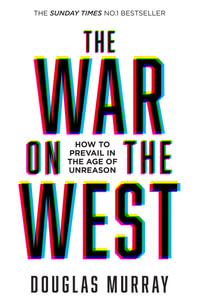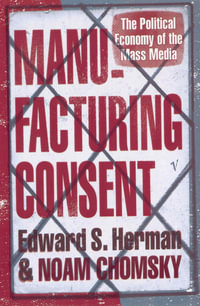Most American citizens are quick to criticize federal bureaucracy for its size and inefficiency. They assume it has exceeded the intent of our nation's founders; yet men like James Madison and Alexander Hamilton knew that good public administrators were essential to good government.
William Richardson here examines the origins, legitimacy, and limitations of public administration from the perspective of the Founders' thought. He shows that these men -- especially the authors of The Federalist -- advocated an energetic public administration as an essential component of government and even considered the emergence of a "natural aristocracy" of virtuous civil servants. The Founders would see the fault of today's federal bureaucracy, argues Richardson, not as much in its size as in the character of its members.
Richardson relates the Founders' belief that the nation should strive to produce public servants committed to developing character traits, such as wisdom and moderation, that would exemplify the highest ideals of the republic and thus ensure its survival. They anticipated some self-interest on the part of administrators, but believed it would be held in check by public opinion and the political process.
To test the success of the Founders' ideal, Richardson examines both the character of administrators and the role of ethics in forming that character. He explores the various plans for educating public leaders throughout American history and looks at how attitudes toward public administration have changed in this century, from Woodrow Wilson's scientific ideal to recent proposals to downsize government. Among other suggestions, Richardson advocates reforming existinginstitutions by emphasizing character.
Democracy, Bureaucracy, and Character is an exercise in legitimizing public administration, offering important insights into the Founders' thoughts that can be applied to today's debate over government bureaucracy. Public administration may be problematic by nature, observes Richardson, but it is crucial to our form of government. Through his analysis we can see that, while bureaucracy and democracy have long had an uneasy relationship, neither can be effective unless we fully assess the place and purpose of character in the American regime.
"Thoughtful and cogent throughout, this book excels in explaining the philosophical basis of the Founding Fathers' constitutional craftsmanship. An important addition to the growing literature on the constitutional foundations of public administration". John A. Rohr, author of To Run a Constitution
"A commendable study that well exemplifies the tremendous expansion of the concerns of public administration in the past half century". Dwight Waldo, author of The Enterprise of Public Administration
"A wise and thoughtful book that will be of great interest to officers of government, policy analyst, and citizens". Ralph Ketcham, author of Framed for Posterity: The Enduring Philosophy of the Constitution
Industry Reviews
"Thoughtful and cogent throughout, this book excels in explaining the philosophical basis of the Founding Fathers' constitutional craftsmanship. An important addition to the growing literature on the constitutional foundations of public administration."--John A. Rohr, author of To Run a Constitution"A commendable study that well exemplifies the tremendous expansion of the concerns of public administration in the past half century."--Dwight Waldo, author of The Enterprise of Public Administration
"A wise and thoughtful book about the philosophy of public administration as understood by the Founders. In explaining how such an understanding of public administration might confound and combat the present epidemic of antigovernmentism, this book will be of great interest to officers of government, policy analysts, and citizens."--Ralph Ketcham, author of Framed for Posterity: The Enduring Philosophy of the Constitution
"A sterling defense of the ways public institutions define, limit, and celebrate American democracy, while reminding us that it is the honorable character of public servants that has brought us this far."--Ralph Clark Chandler, author of Civic Virtue in the American Republic: Essays on Moral Philosophy and Public Administration "An important reexamination of certain founding assumptions regarding the relationships among democratic governance, government administration, and the 'character' of both the governed and the governing."--Perspectives on Political Science"Richardson has successfully packed considerable perceptiveness and stimulating analysis within a short compass."--American Political Science Review
























